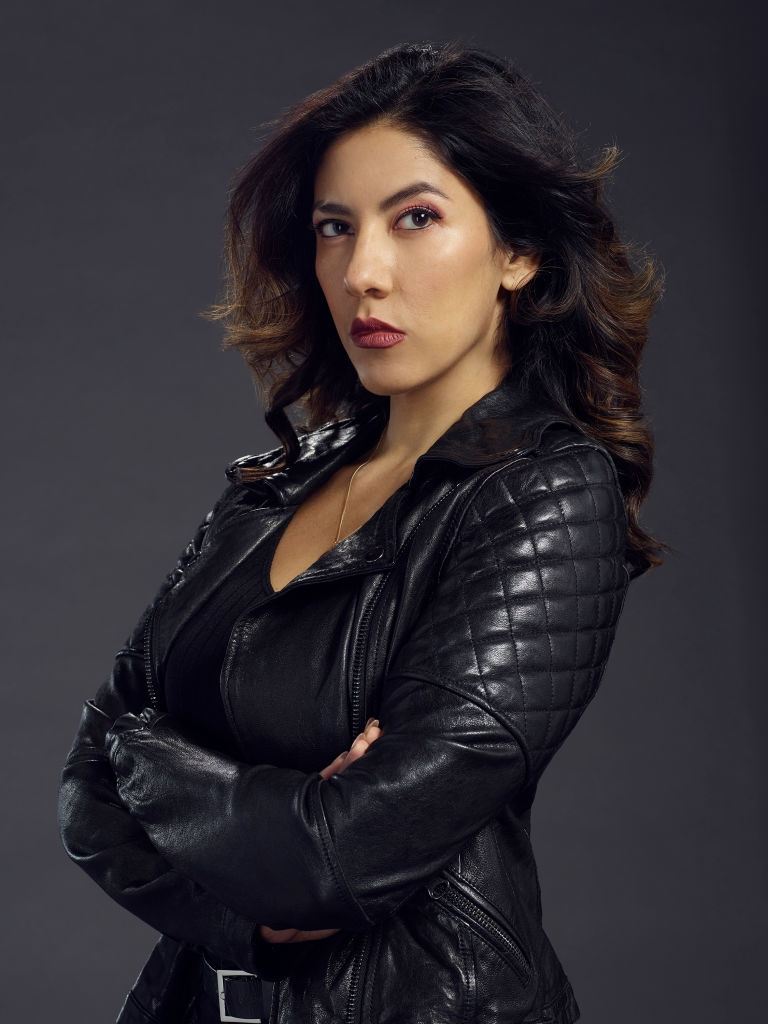By Casey Lawrence
[NOTE: SPOILER ALERT] “Everyone on this show is bisexual,” I told my boyfriend when we started binge watching Brooklyn 99, a fast-paced, character-driven sitcom about police officers in Brooklyn’s 99th precinct.
“Everyone?” he asked, taking my non-sequitur in stride, as he always does.
“Everyone except Captain Holt,” I said. “Because he’s gay.”
In my headcanons—theories about or interpretations of fiction that may or may not be supported by the facts in the work itself—everyone is bisexual until proven otherwise. It’s one of the ways that I legitimize myself in my day-to-day life. Unless someone on a TV show explicitly references their sexuality, there’s no way of “proving” they’re not queer; I am able to project aspects of my life onto characters I relate to.
I am forced to do this, of course, because there are so few representations of bisexuals that are explicit in mainstream media. Those that exist are often problematic. While I avidly followed Callie Torres’s character on Grey’s Anatomy, having only one character to “call my own” when my straight friends had dozens felt wrong. Why can’t a show have more than one queer character? I asked myself. Why should we assume that straight is the default?
I have made a conscious effort not to assume that characters are straight. When a show does a “big reveal” of a queer character’s queerness, I celebrate, of course—but I take it in stride as their “coming out” to me, not as a surprise switcheroo. I find myself picking up on subtext, reaching for evidence of my convictions. When I’m proven wrong—if a character says definitively, “I’m straight”—I don’t have to be devastated, because there are so many other characters who retain their potential for headcanonning. And when I’m proven right? There is no better feeling. As much as headcanons can help me confront the lack of bisexual role models in the media, there is nothing better than having explicit representations of people like me.
Brooklyn 99 is the perfect canvas for me to insert my queer interpretations. Captain Holt, the openly gay police Captain, frequently steals the show, and the show has remained socially conscious (while still being funny!) throughout its run. Brooklyn 99 tackles real social issues from racial profiling to homophobia to gun control while maintaining its lighthearted, remarkably funny formula, which is no small feat.
When the show began to hint at Rosa Diaz—Stephanie Beatriz’s character—getting a new love interest, I got excited. Beatriz has been a long-time favourite of mine, for her portrayal of a badass Latina cop and her LGBT advocacy on twitter. The actress herself is bisexual, but I didn’t dare to hope that the showrunners would write it into the show.
But when Diaz said she was seeing someone, I jokingly said, “It’s a woman.” Until there was proof to the contrary, Rosa was bi in my mind. Even when the new man in her life was revealed, I thought, she could still be bi to me. And then the impossible happened:
Rosa told Charles Boyle, her awkward but well-meaning co-worker, “I’m dating a woman.” There’s a pregnant pause. “I’m bi.”
I gasp; Boyle gasps; my boyfriend accuses me of seeing spoilers. I had been deliberately avoiding spoilers until we had caught up on the new season.
“I’m just that good,” I told him. “It’s like gaydar. I’ve got bi-focals.”
Terrible pun aside, there’s something profoundly liberating in recognising yourself in a character you love. As much as my boyfriend claims I’m an Amy Santiago (the nerdy, obsessively organized detective who balances out Andy Samberg’s character, Jake Peralta), Rosa and I have that connection. We shared a moment, she and I, a quiet moment alone. When she said, “I’m bi,” she was also saying to me and countless others, “You’re not alone.” She is saying, “We’re in this together.” She is saying, “You are real and valid and loved.”
Thanks to NBC picking up the show from Fox after it’s brief cancellation, Brooklyn 99 will enjoy a sixth season, and I can’t wait to see what they do with it. The coming-out narrative, while a good storyline and a necessary one, should not be the end of Rosa’s story. I hope she gets her happy ending, whether it’s with on-again-off-again love interest Adrian Pimento or with someone of any gender, provided they can handle her.
I relate to Rosa’s character for her awkwardness in certain social situations and her desire for privacy, even though I wish I could relate to her badassness. Hell hath no fury like Rosa Diaz when she had been mildly inconvenienced, let alone wronged, and she takes no shit—even from her family. I’ll admit that I’m more like Amy (I, too, go nuts for new pens, notebooks, alligator clips and colour-coded binder dividers), but Rosa’s dignity and poise in the face of rejection is what I aspire to time and time again.
Casey Lawrence is a Canadian grad student studying English Literature. She is the author of two bi+ YA novels, Out of Order and Order in the Court, and the co-editor of an anthology of poetry and short prose, 11/9: The Fall of American Democracy, all proceeds from which benefit RAINN and the ACLU. Follow her on twitter @myexplodingpen or like her on Facebook, @caseylawrenceauthor.
Featured image credit: Brooklyn Nine-Nine wiki

